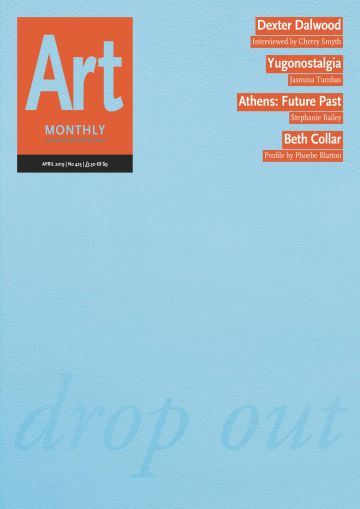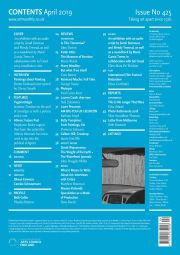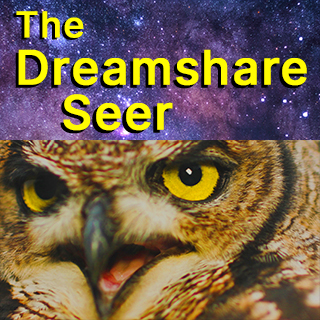Art Monthly 425
April 2019
Dexter Dalwood
Interviewed by Cherry Smyth
Yugonostalgia
Jasmina Tumbas
Athens: Future Past
Stephanie Bailey
Beth Collar
Profile by Phoebe Blatton
Buy Now – select:
Want to read this right now?
Get instant access to the entire back catalogue via Exact Editions from only £8.99!
Contents
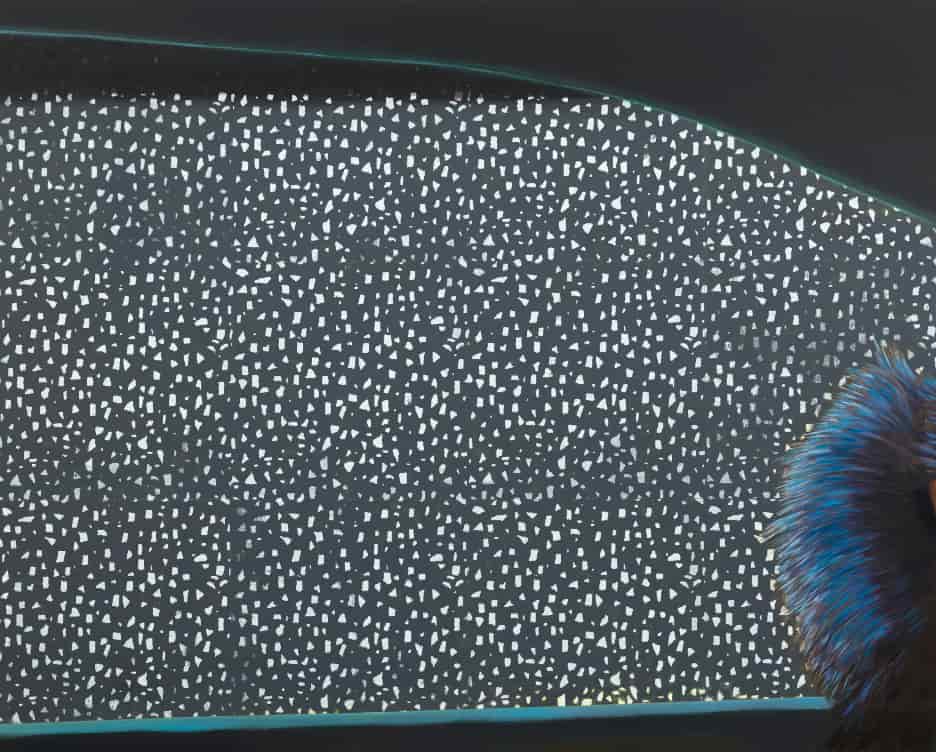
Dexter Dalwood Lux 2018
Interview
Paintings About Painting
Dexter Dalwood interviewed by Cherry Smyth
The London-based artist discusses non-places and spaces, digitisation and deceleration, disconnection and distance.
I was staring at the back of a headrest: it was an easyJet flight and I saw this little pattern and thought, ‘Is this finally where the black square ends up?’ That whole hard-core project of abstraction boils down to this motif that can be placed anywhere.
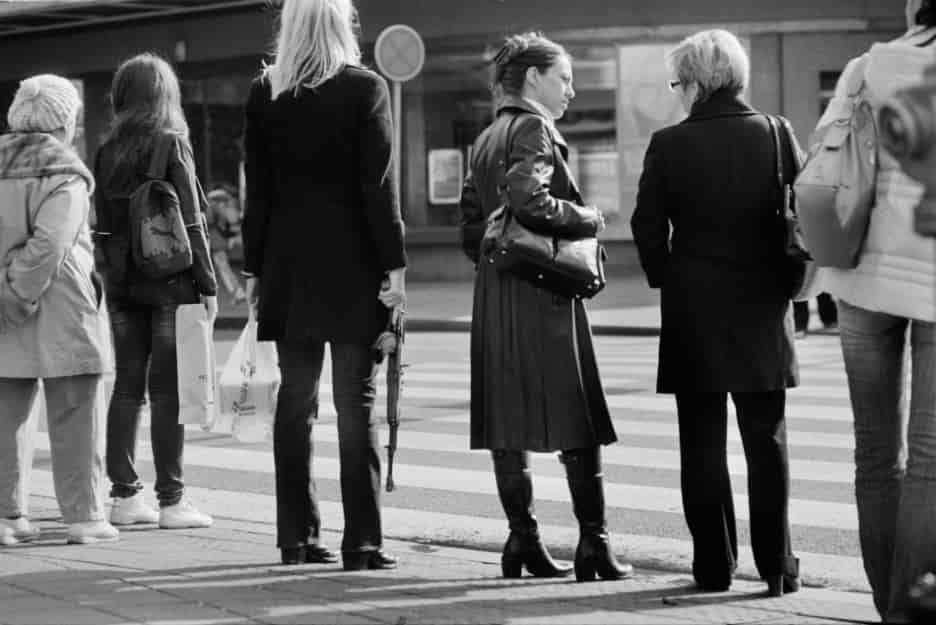
Melica Tomic One day, instead of one night, a burst of machine- gun fire will flash, if light cannot come otherwise 2009
Feature
Yugonostalgia
Jasmina Tumbas on the pull of nostalgia as both a poison and a cure
In the wake of renewed interest in the former Yugoslavia and its art and architecture, it is time to revisit histories of the country’s resistance and socialist values.
At worst, restorative nostalgia is easily instrumentalised for nationalism, genocide and war. At best, reflective nostalgia can inspire us to form better futures.
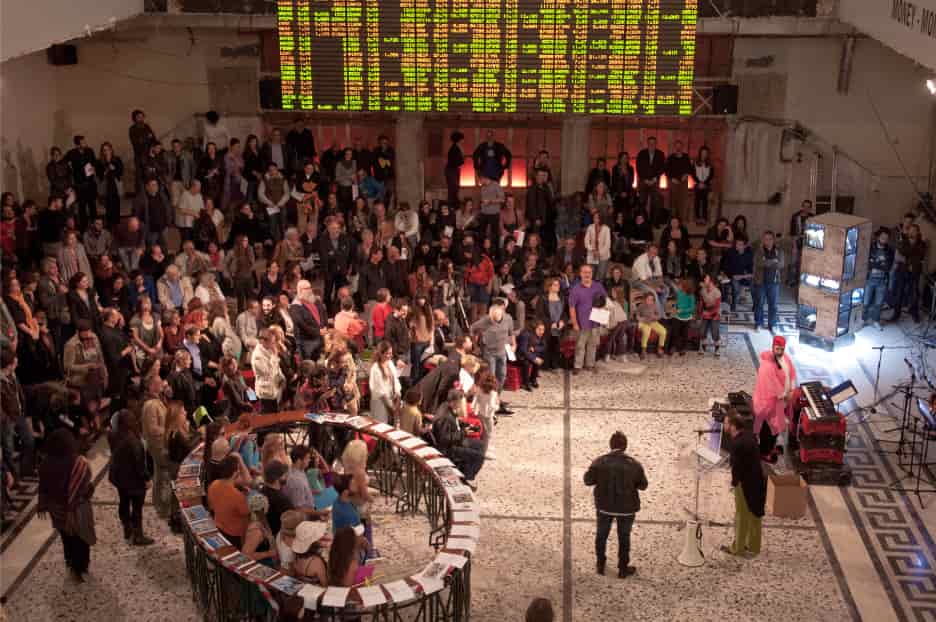
The Beggars’ Operas New Greece (the making-of) 2013
Feature
Athens: Future Past
Stephanie Bailey argues that from the outset the Athens Biennale has been used to tap into the political zeitgeist
Since the first Athens Biennale in 2007, located in the old parliament and titled ‘DESTROY ATHENS’, to the latest, ‘ANTI-’ in 2018, curators and artists have tackled past and present issues in order to imagine the future.
Greece was a historical subject of ‘crypto-colonialism’ defined by Michael Herzfeld as a ‘curious alchemy’ in which certain countries are ‘compelled to acquire their political independence at the expense of massive economic dependence’.
Comment
Editorial
The (Large Blue) Butterfly Effect
Previously extinct on these shores but recently reintroduced, the Large Blue butterfly’s complex lifecycle offers lessons on mutual dependence and survival in an increasingly hostile culture.
It is easy to draw parallels with the art ecosystem: successive cuts to the arts infrastructure are gradually destroying the cultural environment such that the arts can no longer thrive.
Artnotes
NPG Says No
Under pressure from Nan Goldin’s PAIN pressure group, the National Portrait Gallery turns down a £1m donation from the Sackler Trust; V&A Dundee is under pressure to return the £500,000 it received from the Sackler Trust; major art sponsor UBS is fined €4.5bn for tax fraud; the annual Art Market Report reveals the plight of smaller galleries; the National Gallery loses its employment tribunal against its former education workers; Teesside University’s fine art courses move to MIMA to become the MIMA School of Art; plus the latest news on galleries, appointments, prizes and more.
Obituaries
Okwui Enwezor 1963-2019
Carolee Schneemann 1939-2019
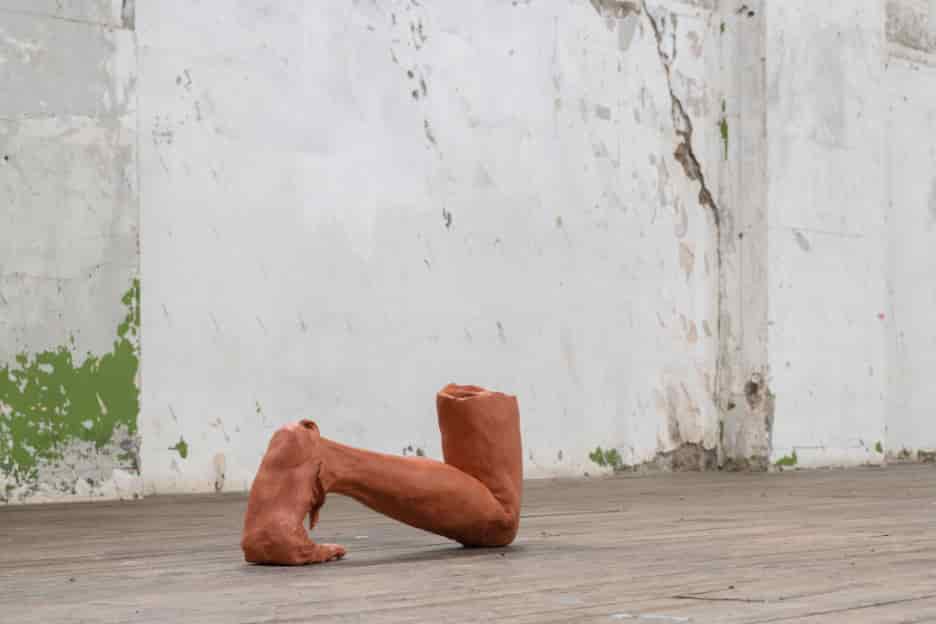
Beth Collar ‘Daddy Issues’ installation view at Dilston Grove
Profile
Beth Collar
Phoebe Blatton on the difficulty of staying in the room with the work of the Berlin-based artist.
The carved faces were taken by Collar to the MAC cosmetics counter at Debenhams to be made up.
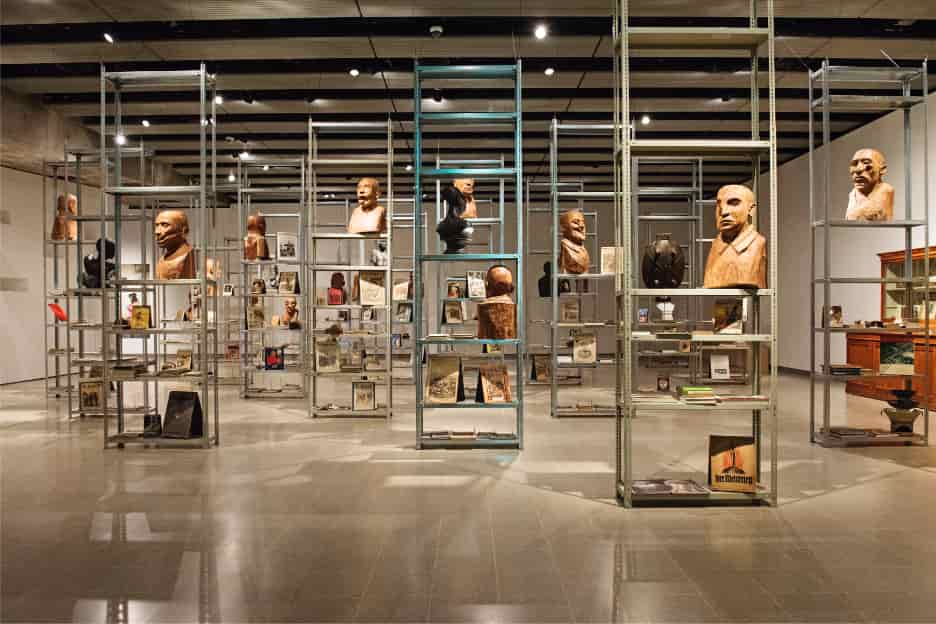
Kader Attia The Repair from Occident to Extra-Occident Cultures 2019
on show at Hayward Gallery
Exhibitions
Is This Tomorrow?
Whitechapel Gallery, London
John Parton
Kader Attia: The Museum of Emotion
Hayward Gallery, London
Maria Walsh
Harry Meadley: But what if we tried?
Touchstones Rochdale
Tom Emery
Reinhard Mucha: Full Take
Spruth Magers, London
George Vasey
Phytopia
Glynn Vivian Art Gallery, Swansea
Paul Carey-Kent
Lauren Gault: drye eyes
Grand Union, Birmingham
Neil Zakiewicz
Laure Prouvost: AM-BIG-YOU-US LEGSICON
M HKA, Antwerp
Kathryn Lloyd
Betty Tompkins: Fuck Paintings, Etc
J Hammond Projects, London
Dominic Johnson
Callum Hill: Crowtrap
LUX, London
Jamie Sutcliffe
Reviews
Artists’ Books
David Wojnarowicz: The Waterfront Journals · Weight of the Earth
John Douglas Millar
When reading these two volumes one is again and again struck by the sense that one is reading about a lost or written-over world that cries out to be heard among the rhetorical and actual violence of President Donald Trump’s America
Reviews
Books
What it Means to Write about Art: Interviews with Critics
Matthew Bowman
With the ever-inflating blogosphere of opinion, many in the art world appear simultaneously unable to take art criticism seriously while also unable to stop taking it seriously. Earnest’s book does us a service in suggesting that criticism, caught in this paradox, does have a future.
Reviews
Books
Marina Vishmidt: Speculation as a Mode of Production – Forms of Value Subjectivity in Art and Capital
Dave Beech
Here, for the first time, the full weight of critical theory – with its characteristic ambition of intellectual scope and relentless exposure of the damage done by calculation, equivalence and abstraction – is brought to bear on art and politics in the age of financialisation.
Reviews
Sound
An exhibition with an audio script by Sarah Demeuse and Wendy Tronrud, as well as a soundtrack by Mario García Torres in collaboration with Sol Oosel
Ellen Mara De Wachter
This pared-down installation is also in keeping with the current transitory state of the institution: Witte de with is part-way through a shift in its identity.
Reviews
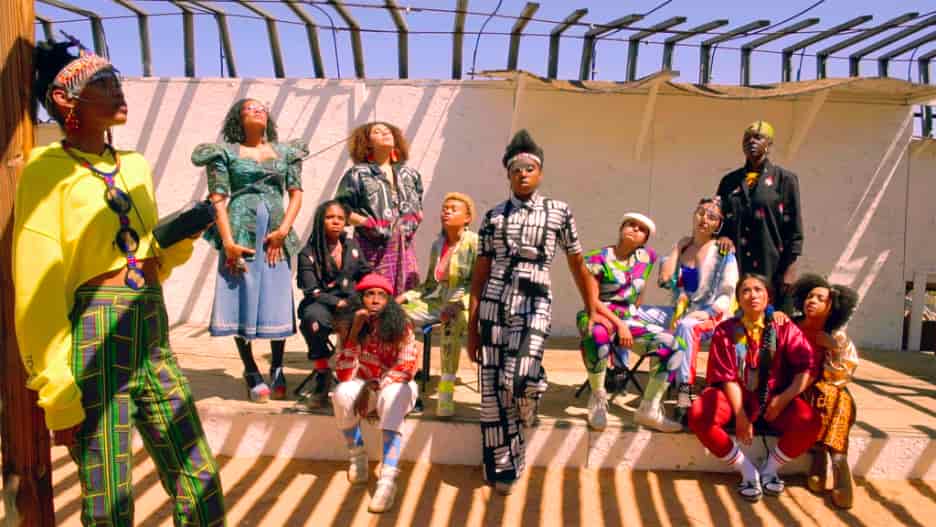
Cauleen Smith Sojourner 2019
Film
International Film Festival Rotterdam
Elena Gorfinkel
The daunting number of strands, screenings and sidebars generated major festival ‘fomo’, with cinephiles scurrying between an array of theatres, art spaces and events.
Reports
Conference
This Is No Longer That Place: A Public Discussion
Elisa Adami
Gurminder Bhambra set out to deconstruct right-wing rhetoric around ‘place’ that was bound up with the Leave campaign’s prioritising of issues of national sovereignty and control over borders.
Reports
Festival
Photo Kathmandu 2018
Skye Arundhati Thomas
In the absence of formal institutional art spaces in the city (which only has a handful of galleries and museums) something very particular happens that is otherwise rare in the subcontinent: everyone gets along, and the sense of community is strong and deeply moving.
Reports

Anna Breckon and Nat Randall Rear view 2018
Letter from Melbourne
A River Runs Through It
Beth Bramich
Melbourne, I was told, is the most European Australian city. It is not far from Sydney, in what is considered a politically progressive state, Victoria.
Listings
Events
Calendar
The updated events and exhibitions calendar can be viewed online.
Exhibitions
Exhibition Listings
Art Monthly's exhibition listings can be viewed online.

